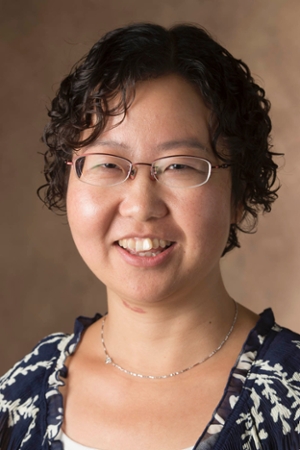 The Southern Illinois University Edwardsville School of Education, Health and Human Behavior (SEHHB) announced this week that its public health program has received accreditation through the Council on Education for Public Health (CEPH).
The Southern Illinois University Edwardsville School of Education, Health and Human Behavior (SEHHB) announced this week that its public health program has received accreditation through the Council on Education for Public Health (CEPH).
SIUE’s undergraduate public health program in the Department of Applied Health is among the first in the nation to be accredited as a stand-alone program, after a two-year application process. The program has experienced steady enrollment growth with students enjoying a promising career outlook. Public health jobs are expected to increase 37 percent by 2020.
“Choosing to pursue accreditation, and earning it, assures students and employers of the quality of SIUE’s public health program, as well as the strength of our faculty qualifications, curriculum and program effectiveness,” said Huaibo Xin, DrPH, program director and associate professor. “Program accreditation makes our students more marketable in an increasingly competitive job market.”
“We applaud the public health faculty for their efforts in achieving accreditation,” added Erik Kirk, PhD, professor and chair of the Department of Applied Health. “It demonstrates that the program complies with the highest national standards for quality, and is committed to continuous improvement in educating students, which aligns with the University’s mission to shape a changing world.”
The accreditation process involved a team of program faculty and University administration, led by Michelle Cathorall, DrPH, assistant professor of public health. It included a comprehensive self-study process with close examination of every aspect of the program, courses, faculty and resources. Additionally, a team from the CEPH conducted an intensive two-day site visit.
“Our accredited program addresses all of the core public health competencies in our curriculum to ensure our students meet national standards,” Cathorall said. “These include public health sciences, analytic skills and assessment, health communication, cultural competency, leadership and system thinking and more. In addition to classroom experiences, our students participate in structured service learning projects, internships and international week- and month-long travel study courses.”
Elective courses within the program allow students to emphasize areas of interest, such as adolescent health, minority health, environmental health and global health. Graduates are prepared for employment in such areas as state and local departments of public health, nonprofit organizations, corporations, schools, colleges and universities, and medical care settings.
“The focus on working with communities to plan, implement and evaluate projects over the course of the academic year is a key feature of our program that students find especially valuable for learning how to apply classroom learning in a real-world setting,” Xin emphasized. “We are building on the solid foundation of our undergraduate program to seek both on and off campus collaborations to develop more focus areas that meet students’ increasing demands and the needs of the communities we serve.”
Informal learning opportunities also exist for students to work on research with faculty members, present at regional and national conferences, and participate in the Eta Sigma Gamma public health honorary society.
For more information on SIUE’s public health program, visit siue.edu/public-health.
Photo: Huaibo Xin, DrPH, program director and associate professor in SIUE’s public health program.